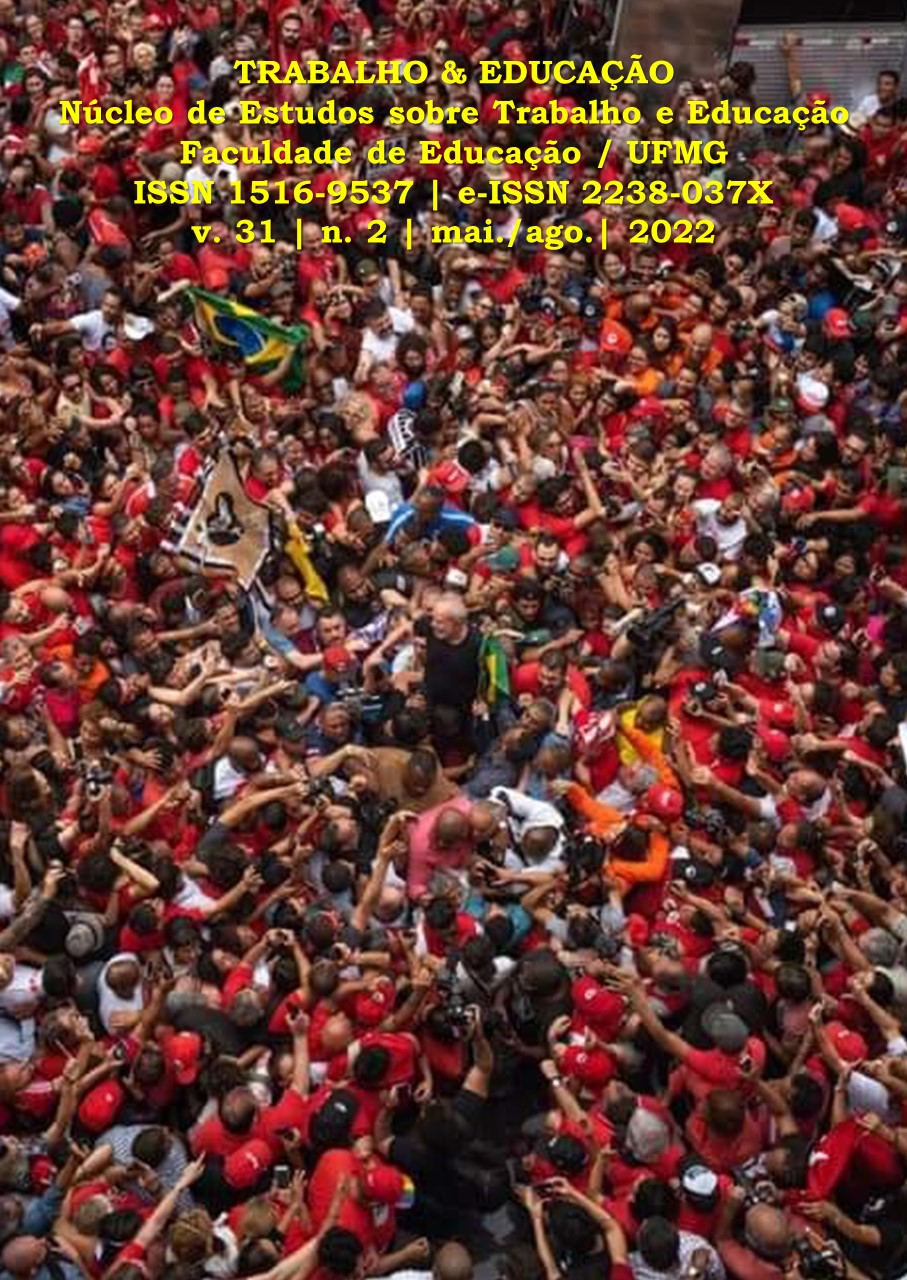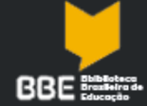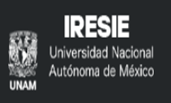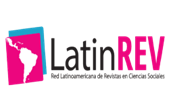Work, teaching and autonomy at Brazilian federal institutes
the possibilities of reality from a study at IFNMG
DOI:
https://doi.org/10.35699/2238-037X.2022.39838Keywords:
Job, Teaching work, Autonomy, Federal InstitutesAbstract
The text presents the results of a doctorate research entitled “Work, teaching and autonomy at Brazilian federal institutes: the possibilities of reality from a study at IFNMG” that aimed at analyzing the configurations of teaching work and of autonomy at the Brazilian federal institutes. By electing autonomy at teaching work as study object we sought to identify the conceptions disseminate around the term “autonomy” and of their relationship with the existent sociability. Thus, it is an investigation that, taking into consideration the conditions for the exercise of the activities, it investigated the degree, the form and the content of the autonomy perceived and manifested by the teachers that work at campus Salinas of Instituto Federal do Norte de Minas Gerais [Federal Institute of Northern Minas Gerais] (IFNMG). The literature review, the documentary research and the field research associated to immanent reading and analysis were the procedures used. With those procedures we sought to stablish interlocution with the operation of the capitalist society and with the historical determinations of production and reproduction of life. Besides that, were carried out interviews with a group of ten teachers that work at the institute studied. It was proposed this theoretical-methodological trajectory aiming at not only revealing but also comprehending and reaching the essence of the transmitted messages and of the objective and subjective reality. The research had as main theoretical framework Karl Marx’s texts, but also were stablished dialogues with other references, Marxist or not. We start from the comprehension of Work as a central category for the production of life and of human sociability and autonomy as a manifestation molded by the form Work is objectified. We realize, also, that capitalism imposes changes to Work motivated especially by the amplification of the exploitation of work force. That way of production deforms human nature for it makes the individual to stop producing willingly and do it because he need to guarantee subsistence. That thingy, dehumanized, alienated/estranged form is safeguarded by the State and its whole apparatus. The bourgeois law is one of them. We observed at the studied reality that the configuration given to Work also imposes transformations to the set of teaching activities, at the means and work processes, at the conditions and product of work. We verified that autonomy has been disseminated by the dominant class by means of ideologies, policies, legislations, guidelines and rules as a form of sociability that weakens the stablishing of relationships of reciprocity and social solidarity and facilitates the meeting to capital’s needs. On the other side, as a response to the conditions they are subject to, autonomy is claimed and/or taken by the teachers who, motivated by the need to take conscious of their personal and social existence create embodied situations in adherence and/or resistance to the given reality. Most forms resistance observed are fought at the terrain of law, where there are well delineated juridical limits. However, such forms of resistance bring, to a certain extent, tensions to the capitalist actions and can bring also elements that favor the comprehension of the mechanism of exploitation of the capitalist system and the strengthen of the fight against it. To the absentia of condition of alienation/estrangement of work, the interviewed find in a few activities, especially in those of teaching, spaces far from the “vigilant eyes of state control”, to make use of creative capacity and enjoy the formative and constitutive dimension inherent to those activities. Such findings evince the need to give people the right to be human, of being people. For such, we defend that Work always assume free and creative forms, moved by human needs in place of serving to capital. We defend, finally, the end of capitalism and the building of a society ruled by the workers.
Downloads
Published
Issue
Section
License
Copyright (c) 2022 Trabalho & Educação

This work is licensed under a Creative Commons Attribution 4.0 International License.
Os autores têm autorização para assumir contratos adicionais separadamente, para distribuição não-exclusiva da versão do trabalho publicada nesta revista (ex.: publicar em repositório institucional ou como capítulo de livro), com reconhecimento de autoria e publicação inicial nesta revista.












